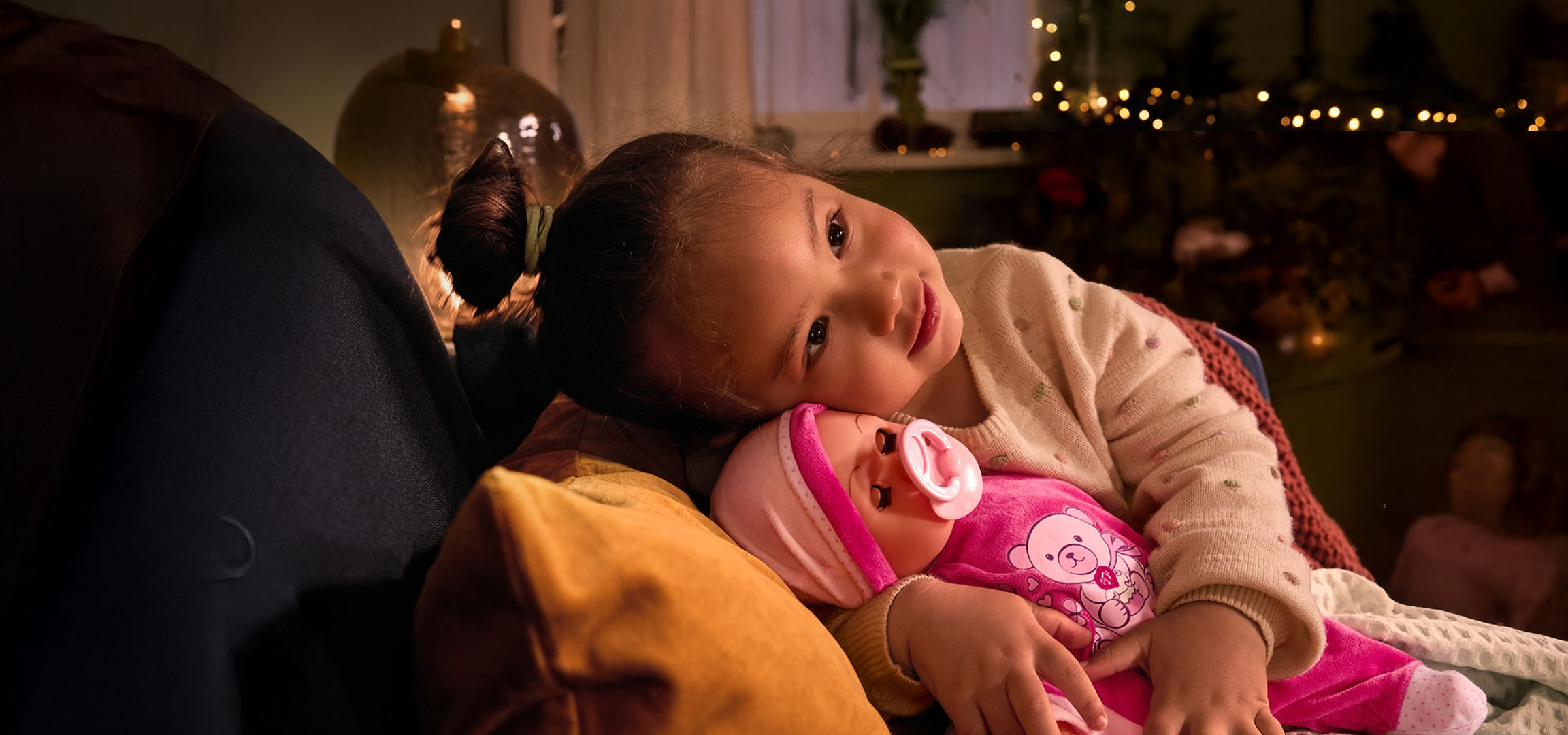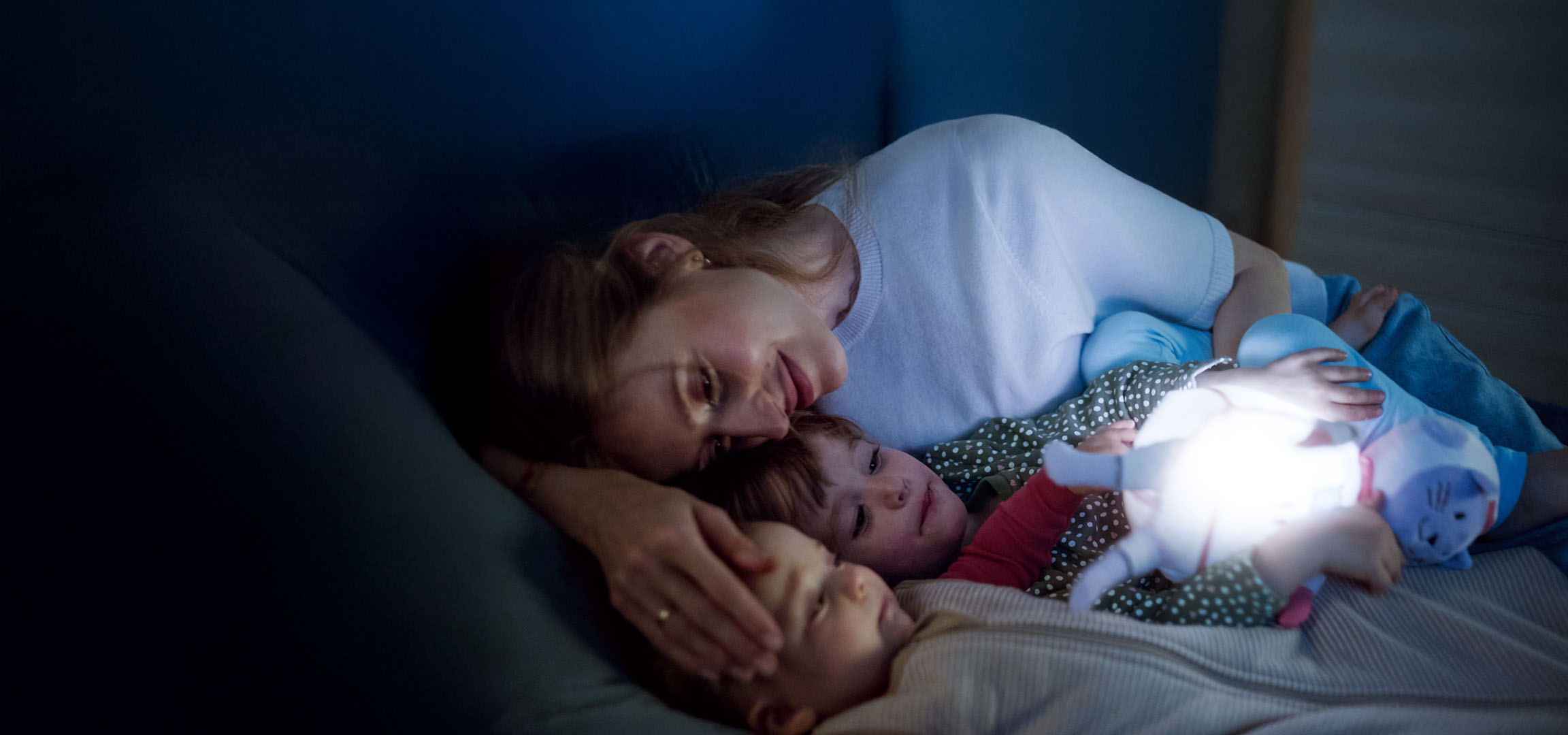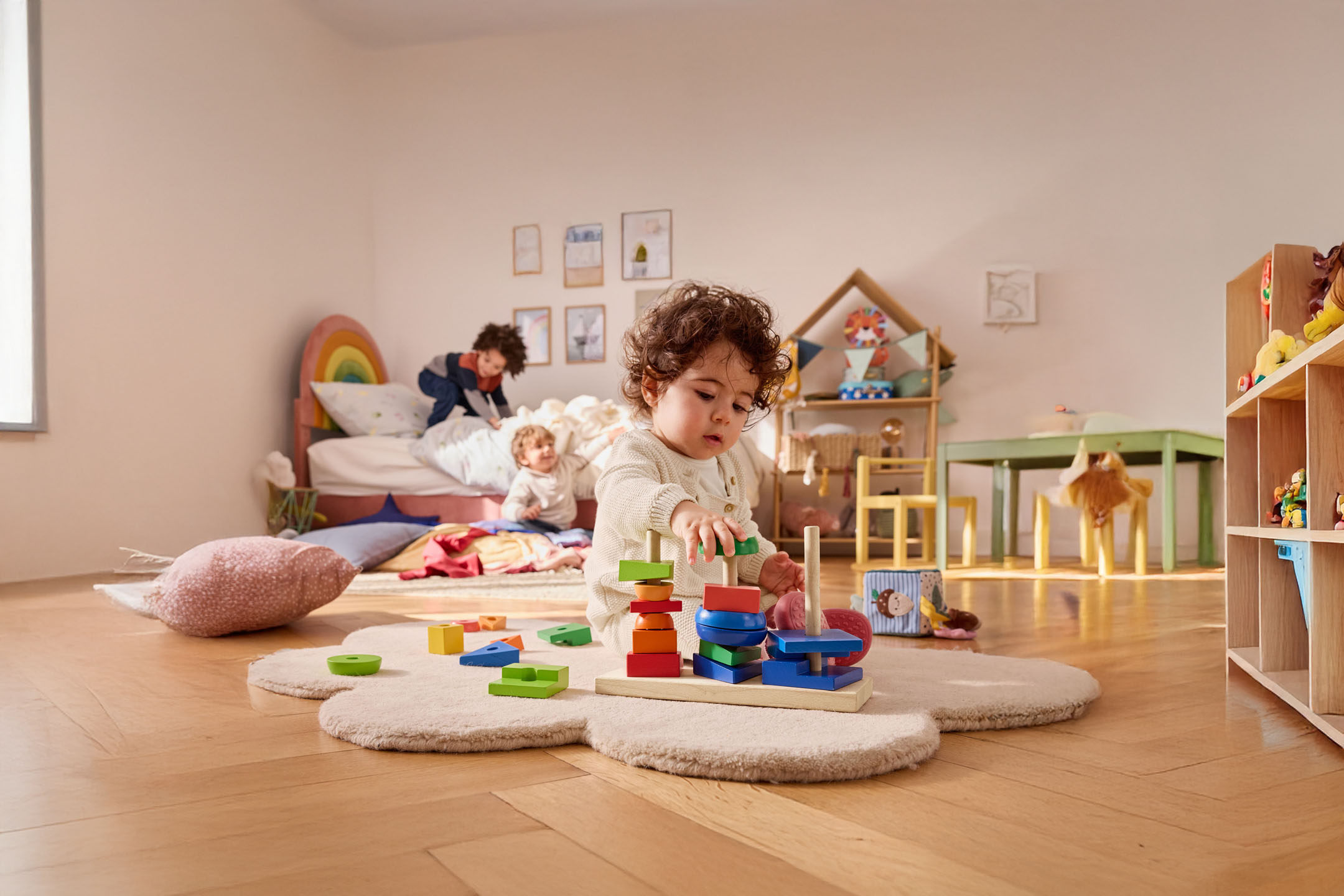Help, the baby won't sleep! Gentle Sleep Tips for Your Baby
A baby needs a lot of rest. A good, undisturbed sleep is important in order to process the countless impressions of the day. But this is often easier said than done. What to do if your child just won't sleep? Here you will find practical tips and sleep aids for your baby.
How much sleep does a baby need?
In the first year of life, babies develop at a rapid pace. And they sleep a lot: a newborn baby sleeps for around 16 to 18 hours a day, evenly spread over around five sleep phases. A few weeks after birth, they already develop a certain rhythm with shorter sleep phases during the day and longer ones at night. However, this does not mean that the baby sleeps through the night - it is only at around six months of age that the baby achieves a continuous sleep duration of around six hours at night.
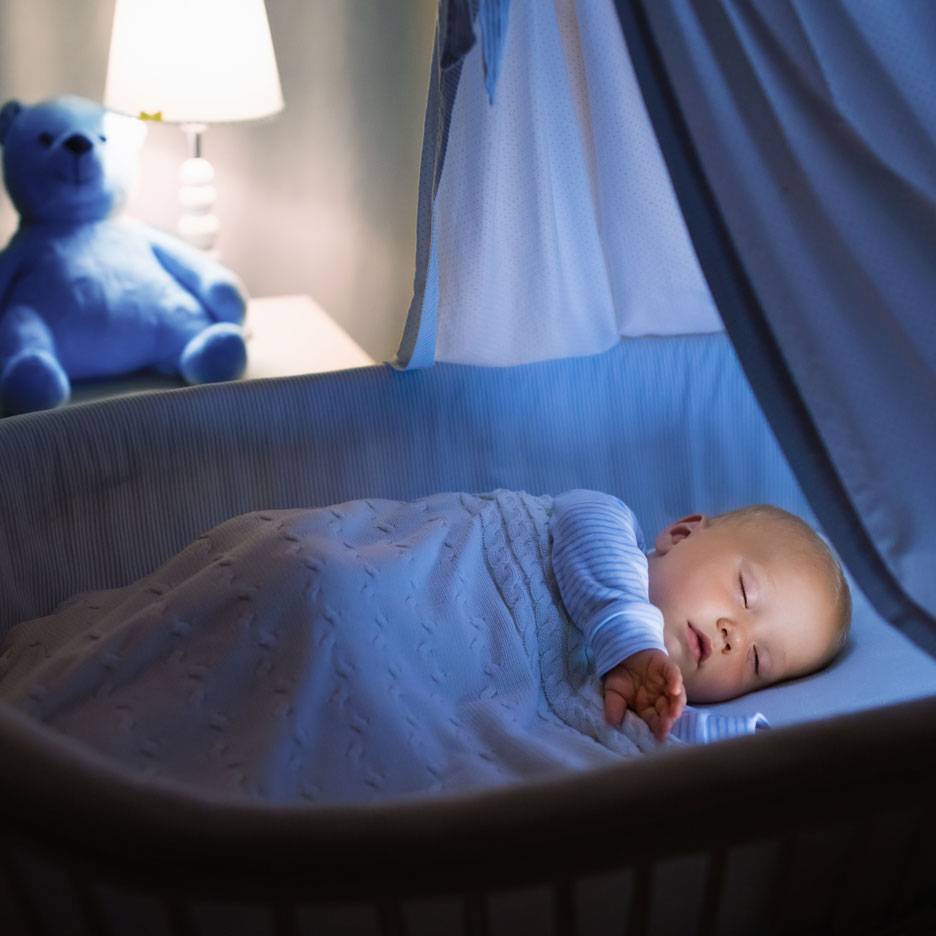
You should always be aware of one thing: your baby is an individual little person and doesn't work according to a textbook. He may need less sleep than average. He may also sleep wonderfully as long as he is close to you. Or your baby suddenly stops falling asleep on their own, even though they were previously an uncomplicated sleeper. This is all perfectly normal - they are constantly developing and their sleeping habits are constantly changing, but you can do something to make it easier for your little one to fall asleep.
Create routines and rituals
A baby doesn't necessarily fall asleep when you put it in its cot, but when he is tired. You can support this with routines and rituals. A regular daily routine creates habits and security. Evening rituals such as bathing, reading aloud, singing and cuddling help your child to calm down and prepare them for sleep, and you can always put your little one to bed at the same time in the evening to encourage a regular day-night rhythm. A common evening ritual and a quiet, darkened sleeping environment will help.
Reading aloud
Reading aloud in the evening creates a sense of security and sets the mood for sleep. Bedtime books with large, high-contrast pictures can also be recognised by small babies. Short texts in verse form bring a calming rhythm to the language.
Creating the perfect sleeping environment
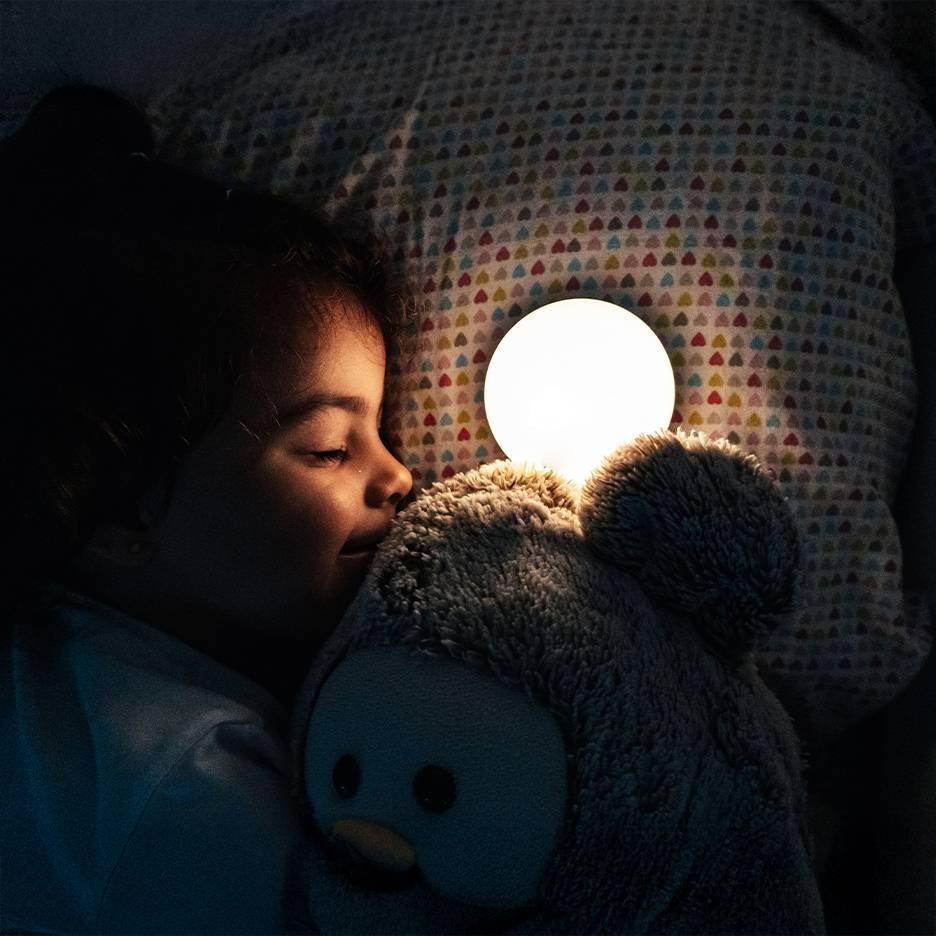
A night light
The best sleep aid for a baby is a safe and cosy sleeping environment, paired with a bedtime ritual. A small night light and a slightly open door ensure that your little one doesn't feel left alone when lying in their cot. What else is needed to make your child feel safe and secure?
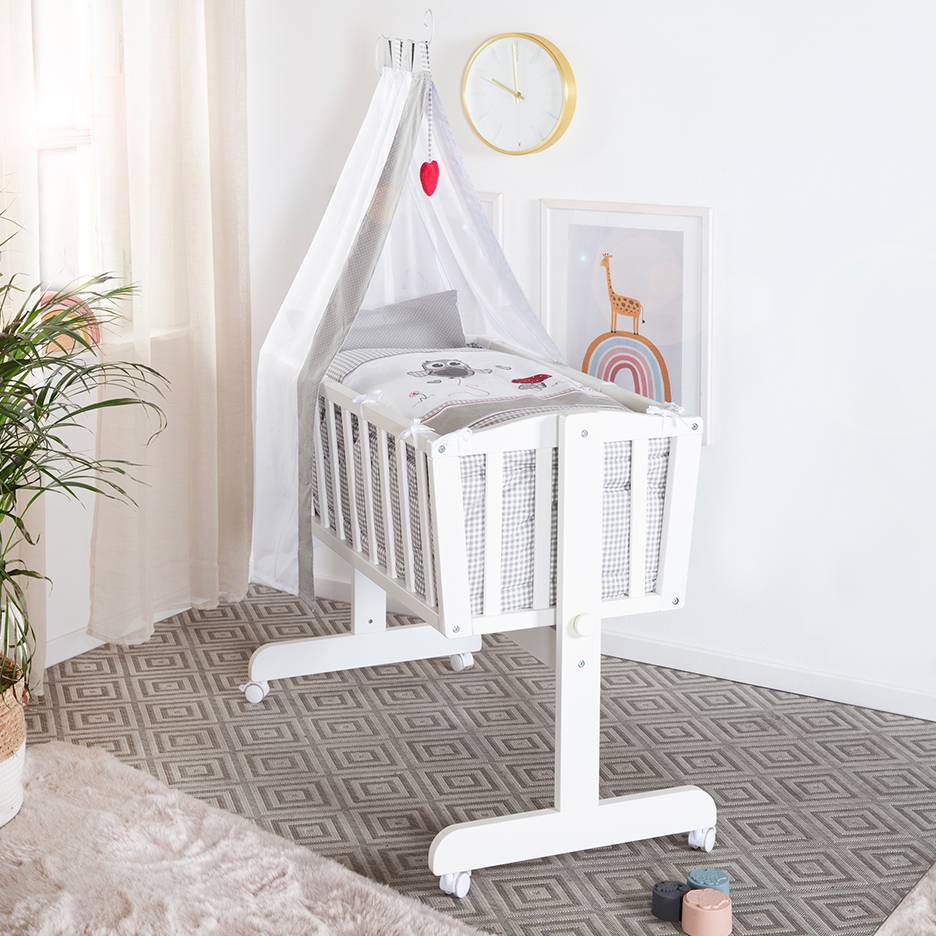
The cot
Your baby probably doesn't sleep equally well everywhere. Newborns in particular miss the natural boundaries they experienced in the womb. Alone in a large cot, they often feel a little lost and find it harder to rest. Small cots, bassinets and cradles that provide a boundary are more suitable. However, larger cots can also be made smaller with a cot bumper. A pretty canopy also creates a boundary at the top and provides a sense of security, and your baby may not sleep well if they are alone at night. In this case, you can use a co-sleeper to provide the physical closeness you long for. It is placed with the open side next to the parents' bed so that mum and baby sleep right next to each other. This has another advantage: breastfeeding mums no longer have to get up at night, but can simply take the baby over to them if necessary.
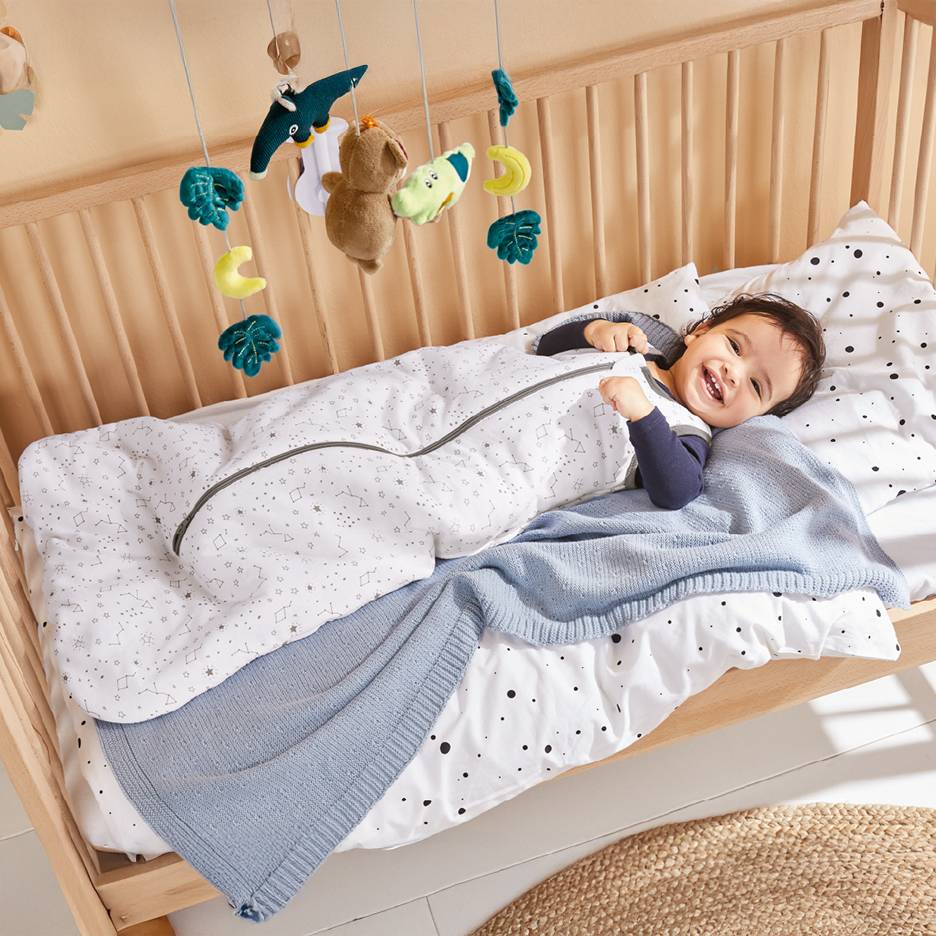
Sleeping bag or blanket?
For safety reasons, a sleeping bag is recommended for babies in the first year of life. The reason: babies do not sleep quietly, but also kick their arms and legs while sleeping. A sleeping bag sits securely and does not slip, whereas a blanket is quickly kicked off or - and this is when it becomes dangerous - pulled over the face.
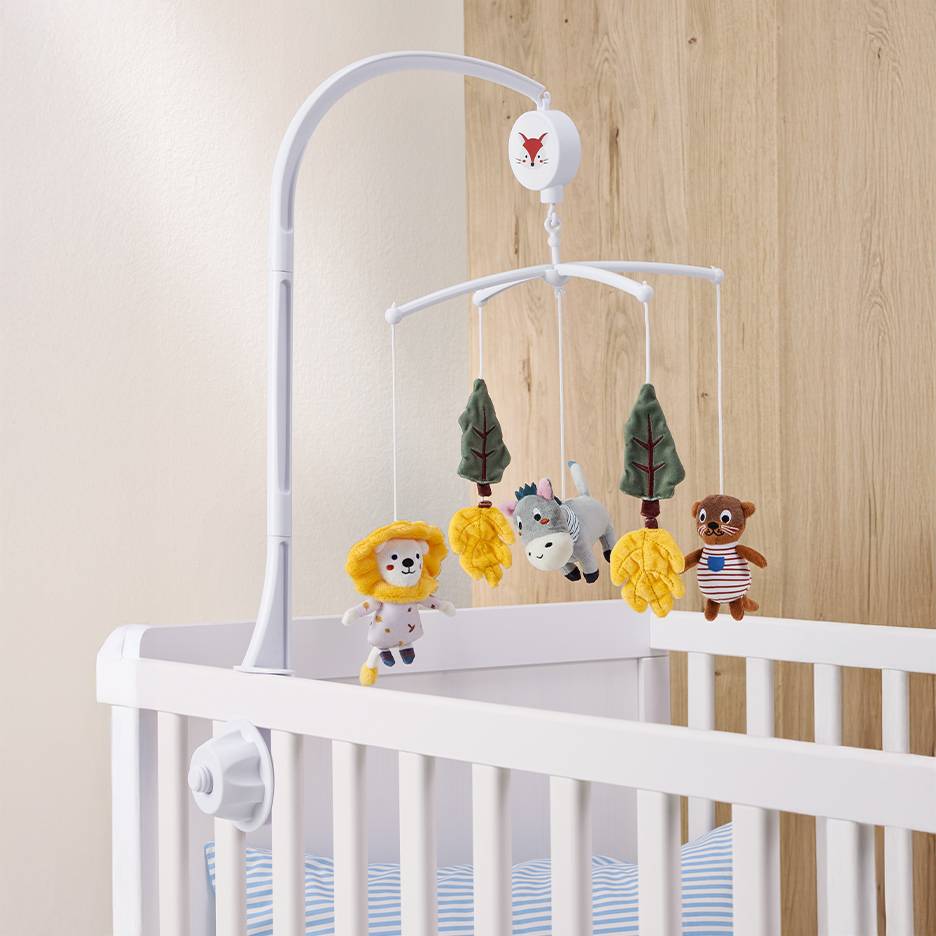
Music box, mobile and night light
Not only are music boxes, mobiles and night lights purely decorative, they can also be really good sleep aids for your baby. Playing a music box can also be part of the evening routine - for example, always just before the light is switched off. By repeating this daily, your baby will quickly learn that it's bedtime. The calm dancing of the figures on a mobile occupies the eyes and has a calming effect. A dim night light that breaks up the darkness in the room helps the baby to orientate itself, especially if it wakes up in the middle of the night.
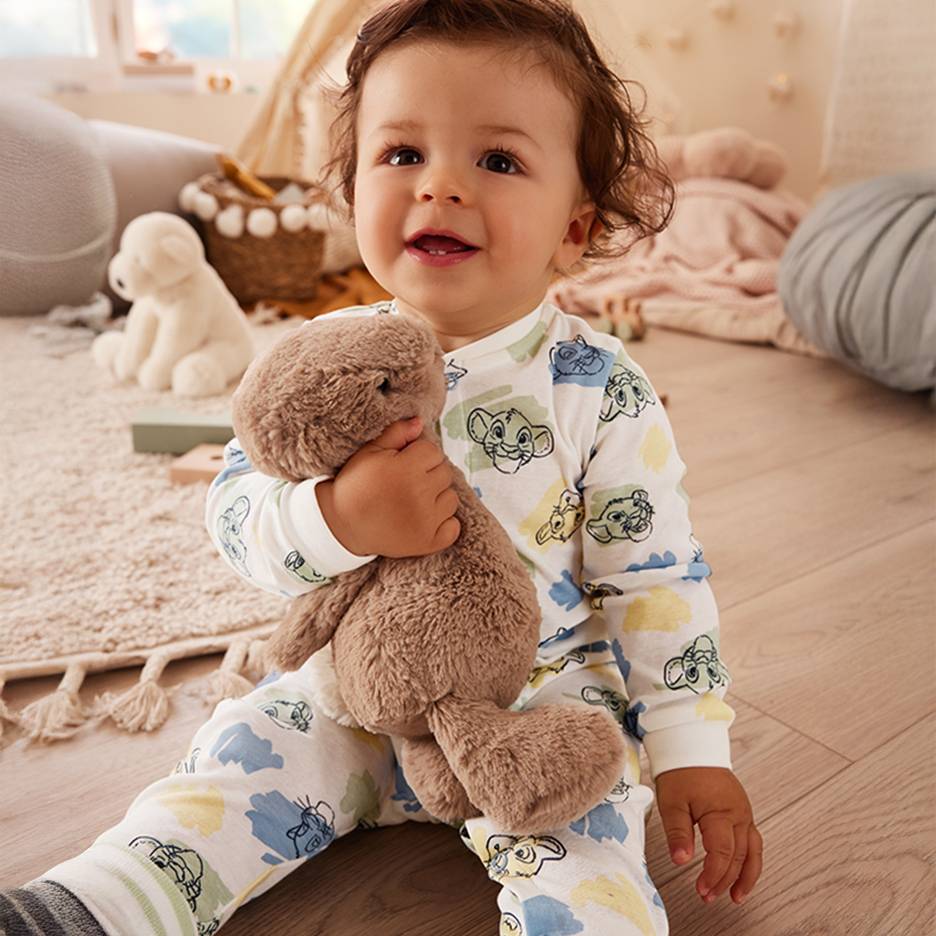
A cuddly toy as a friend and protector
Many children develop a close relationship with a cuddly toy from an early age, which accompanies them wherever they go. The emotional bond with their cuddly friend also ensures that your little darling feels protected and safe at night. This can help them to fall asleep and ensure that they find it easier to get back to sleep, even when you are not in their immediate vicinity.
